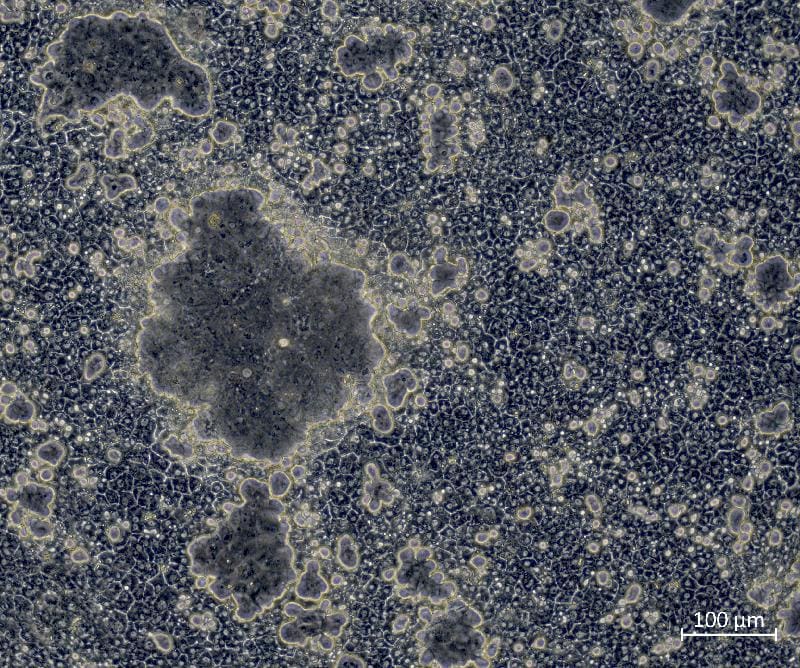Progress in stem cell research: Better liver cells through genetic manipulation
Researchers at the Leibniz Institute for Working Environment and Human Factors in Dortmund have found a way to generate more functional liver cells from pluripotent stem cells. The study shows that the gene regulatory network of the transcription factor CDX2 plays a central role in the formation of hybrid cells that exhibit characteristics of liver and intestinal cells.
Liver cells are essential for drug testing, understanding diseases such as hepatitis, fatty liver, cirrhosis or cancer, and future cell therapies. Due to limited availability from biopsies or donor organs, researchers are looking for alternatives. The differentiation of stem cells into hepatocytes is considered promising, but so far it has led to cells with mixed characteristics, as the liver and intestine have a common origin in embryonic development.

The researchers discovered that unexpected activity of the CDX2 network causes hybrid phenotypes. By specifically switching off the CDX2 gene with the CRISPR-Cas9 system, intestinal characteristics could be largely suppressed. The resulting cells develop a pure liver phenotype with improved functions, including better bile duct formation and more efficient transport of bile acids.
This understanding of gene networks promotes the development of reliable in vitro models, reduces the need for animal testing, and supports regenerative medicine. The results come from the DFG-funded HyCell project with a budget of around 408,000 euros, which runs until 2028. They could make drug development more efficient and safer.
Papers:
Original publications:
Nell P., Thomitzek A., Feuerborn D. et. al. 2025. Elimination of CDX2 restricts intestinal hybrid differentiation signatures in stem cell-derived hepatocyte like cells. Stem Cell Research & Therapy 543. https://doi.org/10.1186/s13287-025-04696-6
Nell P., Kattler K., Feuerborn D. et. al. 2022. Identification of an FXR-modulated liver-intestine hybrid state in iPSC-derived hepatocyte-like cells. Journal of Hepatology. 77. https://doi.org/10.1016/j.jhep.2022.07.009
Editor: X-Press Journalistenb├╝ro GbR
Gender Notice. The personal designations used in this text always refer equally to female, male and diverse persons. Double/triple naming and gendered designations are used for better readability. ected.




